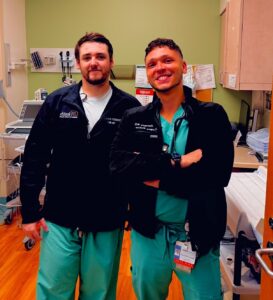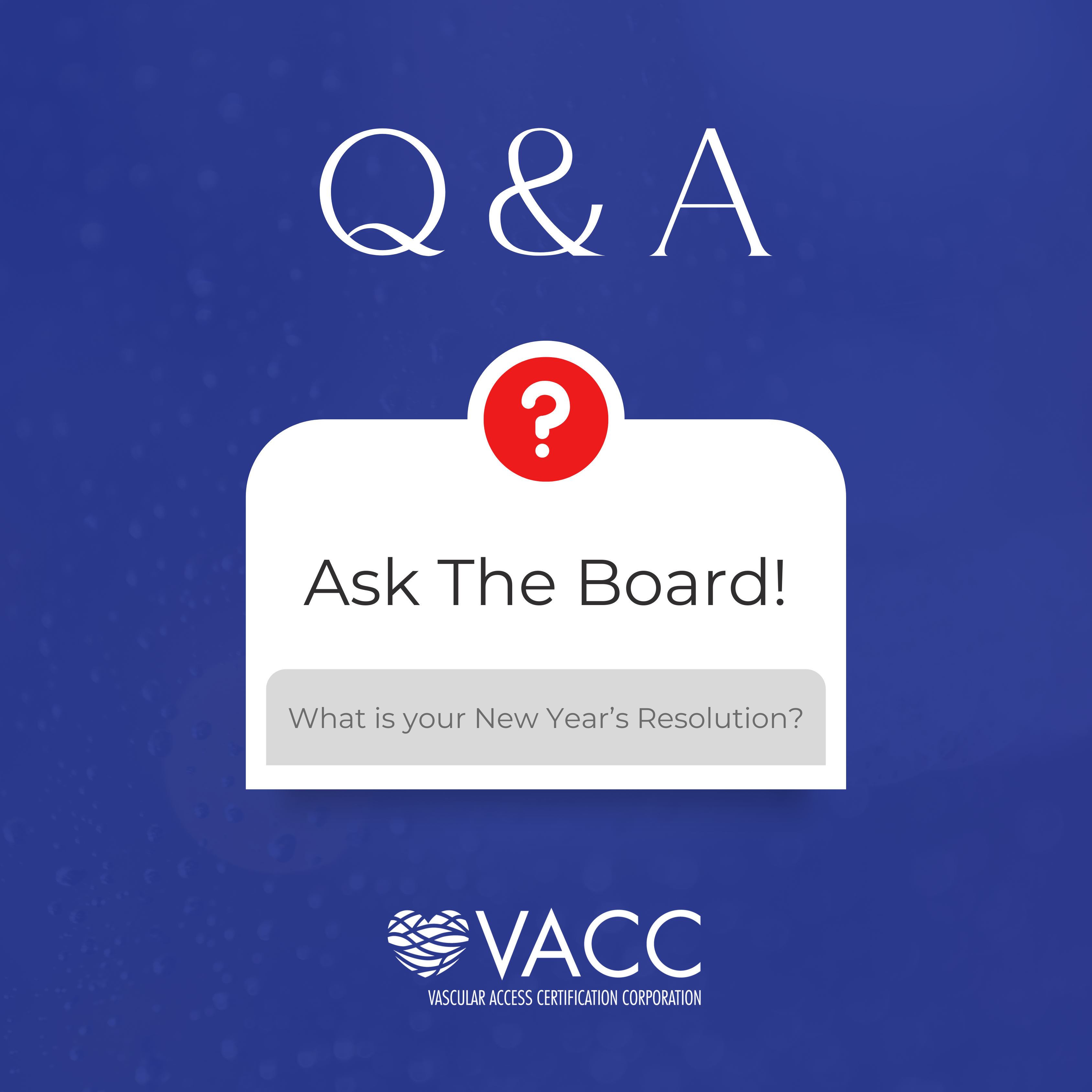
In 2023, Dustin Mason’s father was hospitalized, where he received vasopressors via a midline catheter, specifically Norepinephrine.
“I will spare all of the gore and drama behind this horrible deviation from standards,” Mason told VACC.
When the time came in hospice and his father was passing away, Mason was unable to hold his father’s hand due to the damage of the extravasation from Norepinephrine.
“The reason for wanting to advance my knowledge all relates to the incident that occurred with my father as that is my defining moment in vascular access,” Mason said.
Mason – an EMT in Jacksonville, Florida – became VA-BC™ certified this past December, allowing him to bring the most updated best practice policies and guidelines to the patients he sees every day.
May 18-24, 2025, marks Emergency Medical Services (EMS) Week. Click here to learn more. EMTs play a crucial role in the VA-BC™ community.
“Anyone who works in emergency services or even in healthcare as an EMT/Paramedic knows tiny appreciation goes a long way,” Mason said. “A simple meaningful ‘thank you’ can change a provider’s day.”
He recommends any EMT gets Board Certified, saying we could all benefit from furthering vascular access and infusion therapy knowledge.
“From just the fundamentals of anatomy and physiology to the in-depth topics such as vasopressor administration, everything we do has an impact that could potentially change a patient’s care plan and outcome,” Mason said.
Aarti Maharaj, MD, a Hospitalist Physician at UF Health, describes Mason as passionate about his calling and precise in his practice.
“Dustin brings an energy that fosters teamwork and elevates patient care,” Maharaj said.
Back when he started EMS school, Mason had no idea what an EMT actually did.
“I saw shiny lights and loud horns and I was hooked,” Mason said.
Learning that “true” emergencies are scarce, he fell in love with the patient interaction.
“Being able to show compassion and see how far that goes for each individual patient really reinforces why I wanted to work in healthcare as a career,” Mason said.
When he first started working in vascular access, he – like many others – had only the bare minimum of education.
“Gaining the experience and knowledge allows me to critically think about what the best thing is to do for that patient,” Mason said. “My aspiration in vascular access is to quite simply find the best method to deliver care, the safest way it can be delivered.”
The world of Emergency Medical Services can create unique challenges for vascular access.
“The realm of sterility is very hard to maintain while in an upside-down car or in a ditch,” Mason said. “Improper vascular access can severely change the outcome for a patient.”
EMS has allowed him to develop into a strong leader, which, in his opinion, means guiding others with integrity, clarity, and empathy.
“It involves making tough decisions while considering the well-being of the patient, setting a clear vision, and inspiring/guiding others to work toward it,” Mason said.
His proudest accomplishment is developing the knowledge to determine next steps in vascular access for anyone a part of the care team (Physicians, APRNs, bedside nurses, etc.)
Jerry Shiver, a Rapid Response RN at UF Health, says Mason goes above and beyond for every patient.
“Dustin uses his expertise, knowledge, and skills to provide vascular access to patients as if they were his own family,” Shiver said. “I have never met someone so dedicated and passionate about their profession. Anyone would be lucky to have Dustin as their vascular access expert.”
Mason has begun the schoolwork to go down the premed route. On his days off, he studies and attends conferences.
“In my free time, as odd as it sounds, I research vascular access,” Mason said.
Michelle O’Bryan is a Nurse Manager at UF Health.
“Now that [Mason]’s VA-BC™ certified, he’s helping lead the way as our team grows, and I’m excited to see where his journey into nursing takes him,” O’Bryan said.



